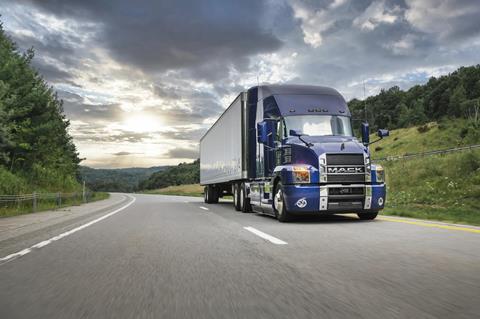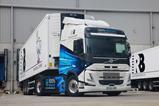Mack Trucks has implemented the use of Hydrotreated Vegetable Oil (HVO) as fuel to transport completed Class 8 vehicles off its production line at Lehigh Valley Operations (LVO) in Macungie, Pennsylvania. This decision aligns with Mack’s commitment to sustainability and reducing dependence on fossil fuels.

“The utilisation of HVO will help Mack in its journey to promote the decarbonisation of the transportation industry,” says Jonathan Randall, president of Mack Trucks North America. ”Whether it’s through the use of HVO, or through the development of Mack battery-electric vehicles (BEVs), such as the Mack LR Electric refuse and Mack MD Electric models, Mack is committed to reducing its Carbon footprint and achieving our sustainability goals.”
At LVO, where all Mack Class 8 models for North America and export are produced, the use of HVO has resulted in an estimated 18% reduction in carbon emissions. Plans are also underway to introduce HVO at Roanoke Valley Operations (RVO) in Salem, Virginia, where the Mack MD Series is manufactured.
HVO, shares similar chemical and physical properties with traditional diesel fuel but has a lower carbon content. This makes it a viable replacement fuel option for enhancing sustainability without compromising engine power and performance. Importantly, Mack engines do not require modifications to accommodate HVO.
Produced from lipid sources such as waste vegetable oils and tallow, HVO reduces reliance on fossil fuels and contributes to lower greenhouse gas emissions. Its production involves hydrotreatment to achieve high purity levels, enabling seamless integration into existing diesel infrastructure.


















